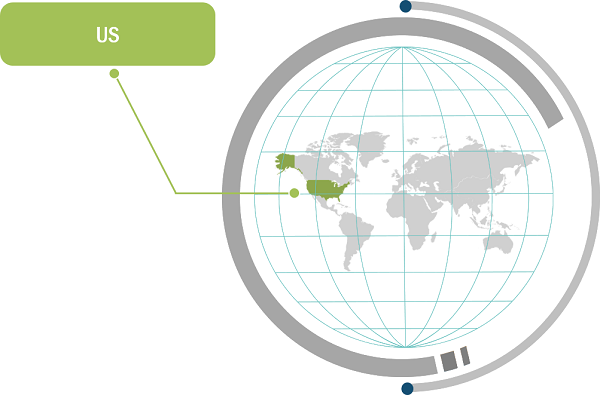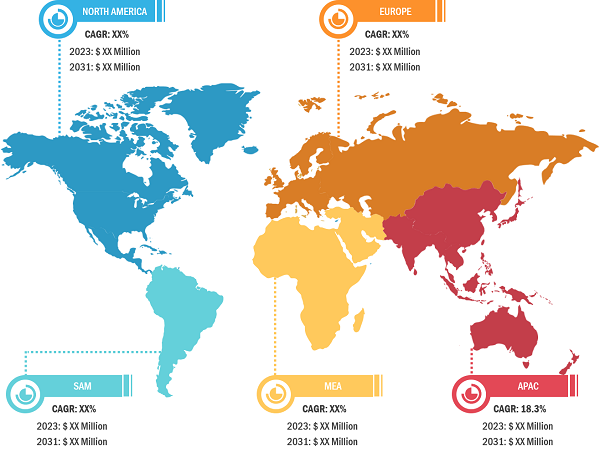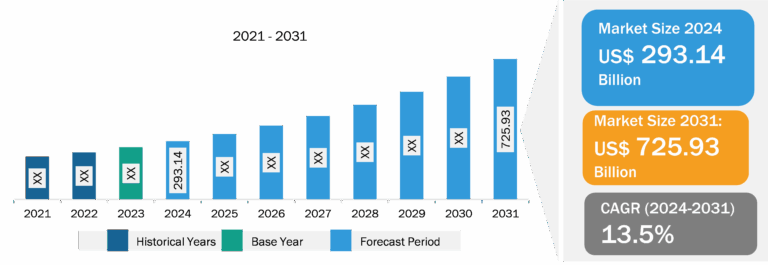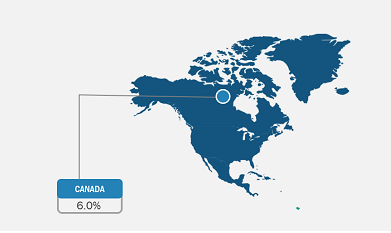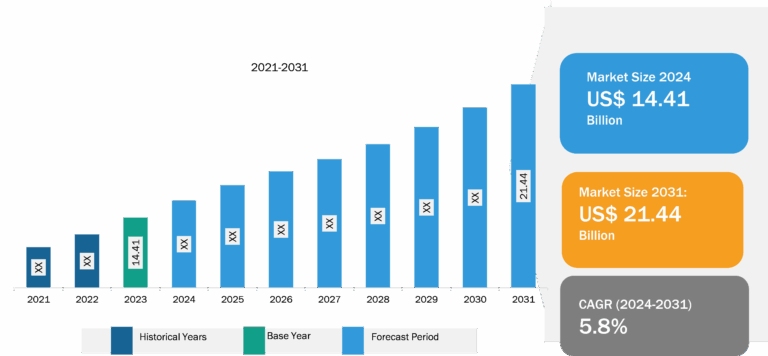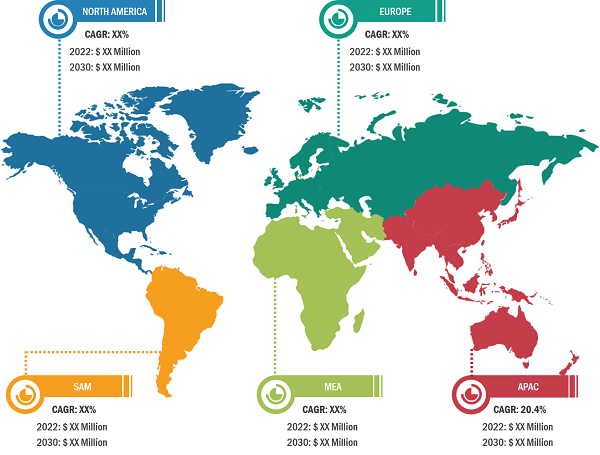
Zero Trust Security Market
Increasing Adoption of Cloud Drives Zero Trust Security Market Growth
Cloud technology is being adopted at an unprecedented pace globally. Cloud adoption offers a scalable IT infrastructure with speed to enterprises. Speed refers to efficiency and has become a prerequisite for gaining competitive advantage in modern business scenarios. The cloud offers the required efficiency for an enterprise to rapidly launch new products and advance competitiveness in markets. As a result, cloud environments have become attractive targets for cyberattacks, including stealing, destroying, or holding ransom business-critical and sensitive data, such as intellectual property (IP), personally identifiable information (PII), and financial information. Hence, the zero trust security model is being adopted to ensure cloud security. Zero trust architecture diminishes risk by blocking any applications or services from communicating until their authentication, in line with predefined trust principles, has been verified. The zero trust framework proposes that traditional IT security models can allow unauthorized users or devices to freely move within the corporate network by fundamentally trusting all users or devices within a network, accessing more corporate data, and raising the probable scale and severity of a cyberattack. A zero trust security system proposes that organizations assume that their network has already been compromised and execute strategies or technologies to minimize further risk. Zero trust strategy aids organizations in understanding the way assets in their environment are communicating. As baselines are established, the technology enables the enterprise to eliminate overprovisioned software and services to further mitigate risk. Such advantages of zero trust security drive the market.

Zero Trust Security Market: Segment Overview
The zero trust security market is categorized based on component, authentication, deployment, organization size, application, and end-use. Based on component, the zero trust security market is bifurcated into solution and service. In terms of authentication, the market is divided into single-factor authentication and multi-factor authentication. Based on deployment, the market is bifurcated into on-premise and cloud. Based on organization size, the market is divided into SMEs and large enterprises. In terms of application, the market is segmented into endpoint, network, and others. Based on end use, the market is segmented into BFSI, e-commerce & retail, healthcare, IT & telecom, and others. By geography, the zero trust security market is segmented into North America, Europe, Asia Pacific (APAC), the Middle East & Africa (MEA), and South America.
In 2022, Europe held the second-largest global zero trust security market share, followed by APAC. The Europe zero trust security market is segmented into Germany, France, Spain, the UK, Italy, and the Rest of Europe. Western Europe is a substantially developed region, hosting several different types of businesses. The rising adoption of digital transformation and automation in Europe supports the zero trust security market growth. There is a rising number of government initiatives to further the digital transformation of European firms, especially for SMEs and traditional sectors. The region’s demand for cloud-based services is offering new growth opportunities for zero trust security market players. With rapid digitalization, new technological advancements, and a rise in customer demands, a growing number of businesses are adopting zero trust security solutions to increase the safety and security of their business operations, propelling the growth of the zero trust security market in Europe.
Zero Trust Security Market: Competitive Landscape and Key Developments
Akamai Technologies Inc, Cato Networks Ltd, Check Point Software Technologies Ltd, Cisco Systems Inc, Fortinet Inc, Microsoft Corporation, Okta Inc, Palo Alto Networks Inc, VMWare Inc, and Zscaler Inc are among the key players profiled during the zero trust security market study. Various other companies are introducing new product offerings to contribute to the zero trust security market size proliferation. Several other important players were also analyzed during this market research to get a holistic view of the global market and its ecosystem. The leading zero trust security market players focus on expansion and diversification, feature upgrades, acquisition strategies, and collaboration, which enable them to grab new business opportunities.
- In November 2023, Cloud Security Alliance launched the Certificate of Competence in Zero Trust (CCZT), an authoritative zero-trust training and credential program claimed to be a first in the cybersecurity industry. The CCZT is anticipated to offer an in-depth understanding of zero-trust architecture, its components, and its functioning. The course includes foundational zero-trust best practices released by sources such as the Cybersecurity and Infrastructure Agency and the National Institution of Standards and Technology (NIST).
- In November 2023, Palo Alto Networks launched Strata Cloud Manager, the industry’s first AI-powered zero trust management and operations solution, and Next-Generation Firewalls. The new solutions are expected to ensure continuous network uptime, enhance network security, and streamline network security management, among other advantages.
- In September 2023, BD Soft, a value-added IT security distributor, entered into a strategic partnership with Zaperon, a pioneering cybersecurity start-up. Zaperon enables Zero Trust Security for organizations through advanced identity and access control, passwordless single sign-on for fortified logins, and continuous risk analysis to proactively identify threats. Through the alliance, Zaperon plans to utilize BD Soft’s extensive channel network within the small and medium-sized business sector and make its cybersecurity technology more accessible to a broader audience.
- In September 2023, Zscaler Inc, a leading cloud security company, announced a partnership with CrowdStrike and Imprivata to deliver a zero trust cybersecurity solution from devices to the cloud tailored for medical institutions.

